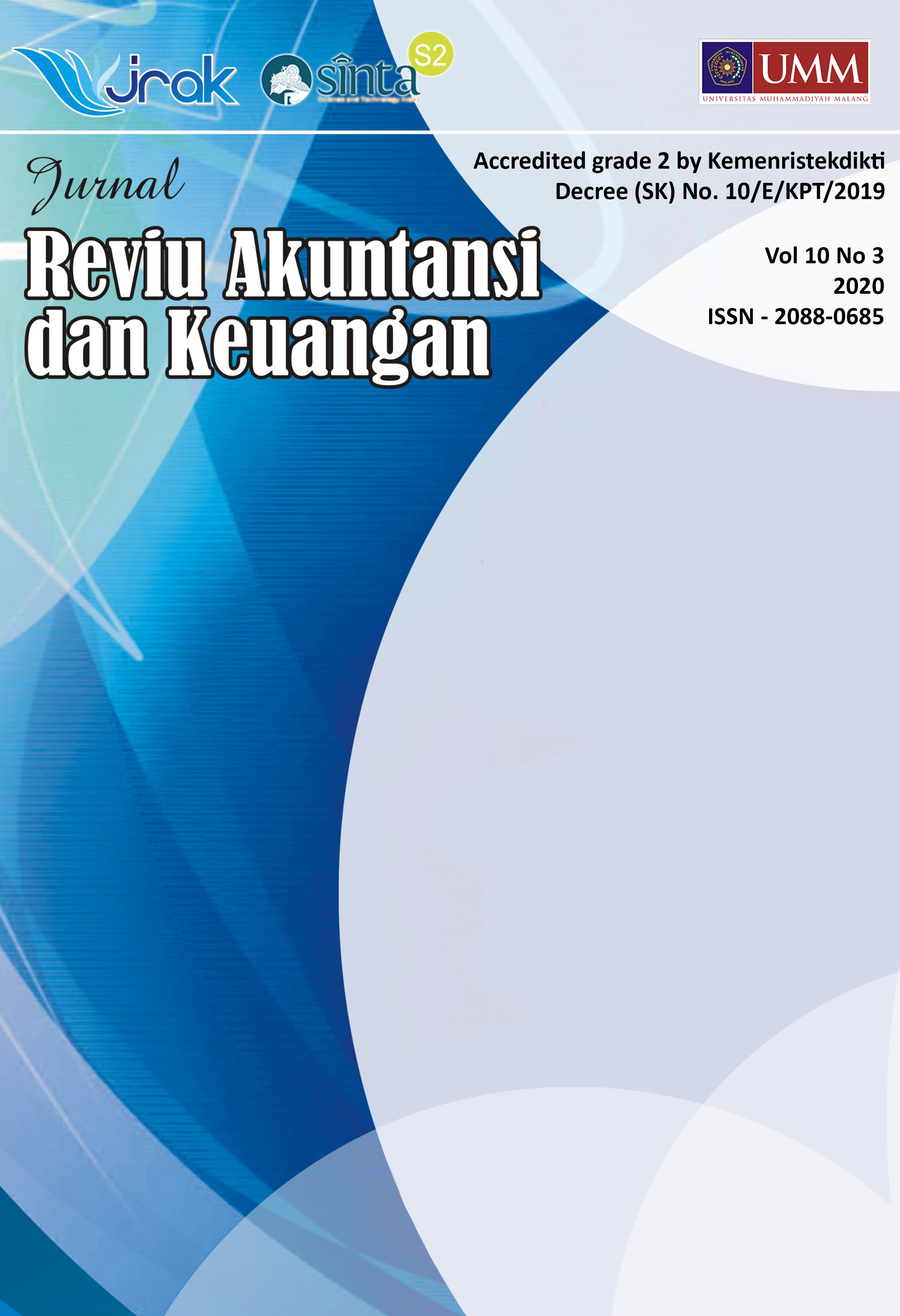International Financial Reporting Standard Adoption: How Does It Happened?
DOI:
https://doi.org/10.22219/jrak.v10i3.13898Keywords:
Corruption control, Economic growth, Education level, IFRS, Legal system, Level of opennessAbstract
This study aims to investigate the determinants of the state’s voluntary adoption of international financial reporting standards (IFRS). The sample consisted of 120 countries that have adopted IFRS voluntarily based on the data released by IAS plus in 2019. The rate of IFRS adoption is measured using an interval scale based Deloyd’s criteria. The independent variables included economic growth, level of openness, education level, legal system, political factor and cultural factor with the corruption control as the moderating variable. The multinominal logistic regression test shows that all independent variables can determine the level of the state’s voluntary adoption of IFRS and the level of corruption control can moderate the relationship. The results of this study provide additional contributions to the literature evidence related to studies of IFRS voluntary adoption. In addition, this study is also able to accommodate a variety of complex factors with various economic, social, cultural and legal perspectives at the level of Jurisdictions.
Downloads
Downloads
Published
Issue
Section
License

Jurnal Reviu Akuntansi dan Keuangan is licensed under a Creative Commons Attribution-NonCommercial-ShareAlike 4.0 International License.
Authors who publish with this journal agree to the following terms:
- Authors retain copyright and grant the journal right of first publication with the work simultaneously licensed under a Creative Commons Attribution-NonCommercial-ShareAlike 4.0 International License that allows others to share the work with an acknowledgement of the work's authorship and initial publication in this journal.
- Authors are able to enter into separate, additional contractual arrangements for the non-exclusive distribution of the journal's published version of the work (e.g., post it to an institutional repository or publish it in a book), with an acknowledgement of its initial publication in this journal.
- Authors are permitted and encouraged to post their work online (e.g., in institutional repositories or on their website) prior to and during the submission process, as it can lead to productive exchanges, as well as earlier and greater citation of published work (See The Effect of Open Access).










